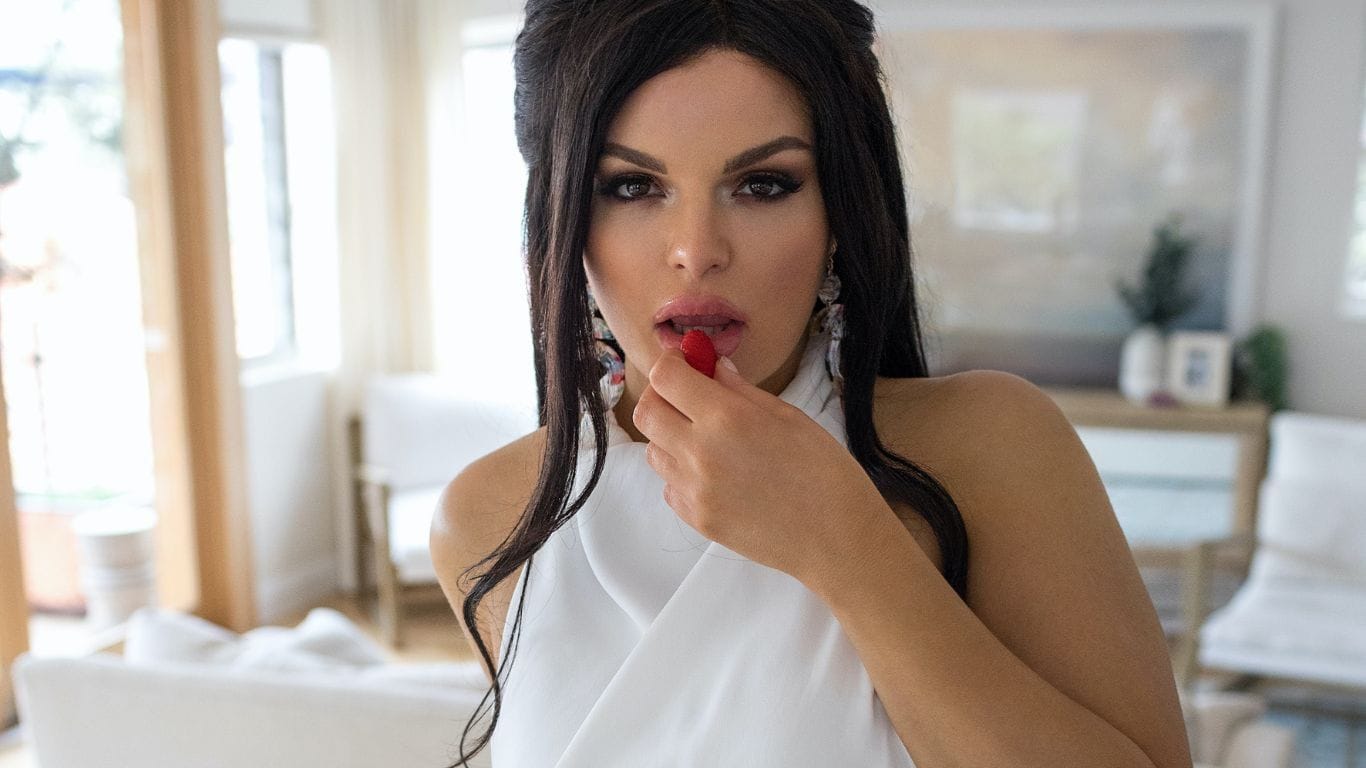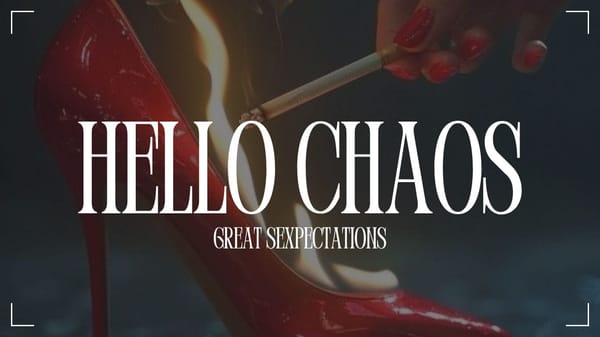The Dark Side of Pretty Privilege
Pretty privilege can open doors, but what about the ones it slams shut? Beauty, while celebrated, carries unspoken burdens that many rarely consider. Sure, looking good has its perks, but behind the compliment-filled curtain lies a complicated reality often left unspoken.
Allow me to share a story that perfectly encapsulates the paradox of pretty privilege. Buckle up—it's a ride you won't forget.
The Encounter That Made My Skin Crawl
It was New Year’s Eve, and I had a 40-minute Uber ride ahead. Exhausted, all I wanted was a quiet ride home, but I got an uncomfortable lesson in how appearance can attract unwanted attention.
The driver started with the usual small talk—"Where have you been?" "Where are you off to?"—but he kept repeating himself like he was playing a broken tape. Then came the compliments, laced with unease. He ogled at my tattoo while suspiciously aiming his gaze across other "juicer" parts of my body. He fussed over my youthful appearance, repeatedly mentioning how "pretty" I was, and how "friendly" I seemed, despite my efforts to remain neutral.
But things got strange as we approached the national park near my area. He told me it was fine to "fall asleep" in the car if I wanted to and started "checking in" on me every few minutes, asking if I was awake. His tone was "helpful" to begin with, like a concerned friend who has your best interests at heart, but this quickly became a situation of unease, why did he care so much if I was asleep while driving through a secluded gorge? And his persistence? Creepy AF.
Then he pried into my life, asking how often I used Uber and if I was affiliated with the adult industry—his reasoning being a WhatsApp group for topless waitresses who supposedly frequented the service for "coke-fueled drives." The insinuations were as thick as the tension in the air, and my calm and cool super-friendly demeanour on the outside was now a mask. Inside I was terrified he had other motives.
When we finally reached my secluded house, he offered to help with my luggage. Before I knew it, he'd followed me right up to my front door, asking if we could share a cigarette outside. I agreed, but as we stood in the dimly lit garden, surrounded by trees and shadows, the questions kept coming—"Do you live alone?" "Are you married?" "Who else lives here?" That’s when I decided to shut it down. The sprinkler nearby became my unintentional ally; I turned it on, creating a wall of water as I tersely said, "Nice to meet you," before locking myself safely inside.
He knew the discomfort he was causing. He even acknowledged it. Yet he persisted. All because I was "a pretty girl." And because I was a pretty and friendly girl he had the entitlement, as he likely always has thorough his life, to make me feel uncomfortable as he expressed his desires without a care in the world for my mental wellness, safety, or peace of mind.
What is Pretty Privilege?
Pretty privilege refers to the advantages people experience based solely on their physical attractiveness. Often unconscious, this bias shapes society in subtle yet impactful ways. It's a form of "halo effect"—a cognitive bias where people assume one positive trait (e.g., good looks) means someone has other positive attributes too, like intelligence, competence, or kindness.
Some real-world examples?
- Getting away with minor infractions (e.g., not being ticketed when pulled over by a lenient police officer).
- Being hired or promoted because your appearance "fits the brand."
- Receiving free drinks at bars or preferential treatment in work and social settings.
As with any privilege, there’s often a catch. Let’s revisit the reasons why scenarios like these occur:
- Getting away with minor infractions (e.g., not being ticketed by a lenient police officer): This often happens because the officer wants to be liked and may have ulterior motives, such as romantic or sexual interest.
- Being hired or promoted because your appearance "fits the brand": This can stem from the perception that you look good, and your employer assumes your appearance will appeal to others—driven, in part, by their interests.
- Receiving free drinks at bars or preferential treatment in work and social settings: This typically happens because the individual offering the drinks or favours has a sexual interest.
According to Dr. Cialdini, if a woman allows a man to buy her a drink, it often leads the entire bar to perceive her as more open to him sexually - THE ENTIRE BAR. Furthermore, the mere expectation of alcohol consumption can amplify men's misinterpretation of friendly cues as sexual interest. Expectancies like these tend to become self-fulfilling—one reason I rarely accept drinks from random men, and why I offer to buy them one first should they approach me with this question.
Understanding these power dynamics can help unpack how privilege and perception intertwine in social and professional interactions.
A Pretty Successful Career... Or Is It?
Let's not sugarcoat it—being attractive can have clear perks. Privilege can lead to opportunities and advantages that others may not have access to. People gravitate towards you, favour you, and dates flock to you on apps.
For some women, looks can even turn into a form of currency or social capital, like escorts- used strategically to manoeuvre through life's challenges. But what about the flip side?
The Dark Side of Pretty Privilege
Behind glowing Instagram filters and catcalls from strangers lies the ugly truth of pretty privilege.
1. Superficial Connections
Many relationships formed based on appearance lack depth. You’re approached for how you look, not who you are. People may fail to see past the surface, leading to shallow friendships, flings, or professional connections. Over time, this breeds isolation—how do you trust someone’s intentions when your appearance is always the centre of attention?
2. Objectification
Ever noticed how "compliments" blur the line into entitlement? People stare, comment uninvited, or assume they have a claim over your attention. Objectification strips you of personhood and turns you into something to be consumed.
Dating has been its circus. Time and time again, I’ve met people who see me as some kind of trophy or fantasy, not as, well, me. Being in the adult industry only fuels this nonsense—suddenly, I’m not a person but a walking stereotype in their eyes. I am a cash cow, an ATM, who must always be sexually on or I'm "offside."
They’re not interested in my thoughts on important matters, my dreams, or what I’d rather be doing on a lazy Sunday. No, it’s all about the image they’ve cooked up in their heads about me, and my lazy, decadent and promiscuous lifestyle - not business.
They hyper fixate on sex, appearances and how they feel about it all. And honestly? It gets old fast. There's nothing more deflating than realising someone’s “interest” in you is just an objectifying projection.
3. Jealousy from Peers
Women, in particular, face tension from their peers when perceived as attractive. Envy can lead to passive-aggressive remarks, exclusion, or even outright hostility. This doesn’t just hurt friendships—it reinforces the toxic notion that women should compete for validation. Check out this Instagram post about Frenemies by @perversityx. If you can't see it, you need to log in and follow.
In recent years, I had a front-row seat to the drama that is jealousy—working side by side with someone who wore it like her crown. Pretending to be my "friend," she couldn’t hide her obvious envy of me, for reasons that remain a mystery. Here’s the kicker though—she was already the Queen of the industry, a title I couldn’t care less about chasing for myself. But apparently, that wasn’t enough.
Once, after a photoshoot, she had the nerve to tell me I needed to lose 10 kgs. Yes, seriously. It doesn't stop there—she went on to send me edited versions of the shoot, where she’d gone full Picasso on herself but left me untouched. I mean, the audacity! I just sat there, blinking, completely gobsmacked. The whole thing was equal parts ridiculous and infuriating—a masterclass in insecurity thinly veiled as "helpful advice."
My reply? " There is criticism that is constructive, then there is just being a cunt love." I’m amazed I’m still standing after that comment.
4. Assumptions About Intelligence
The "dumb blonde" stereotype persists for a reason. Attractive individuals often have to work twice as hard to prove they’re intelligent or capable, especially in male-dominated industries.
Men often assume I’m not paying attention or that I don’t understand what’s happening, and I let them think that. It’s amazing how much more of themselves people will share when they underestimate you. They drop their guard completely, and I use that to gather insights and stay a step ahead. Their bias works in my favour, giving me opportunities they wouldn’t normally allow if they thought I was sharper or paying closer attention. It’s a simple trick, but it works every time.
5. Pressure to Stay Perfect
When "pretty" becomes your defining trait, it feels like the only thing people value about you. This feeds anxiety about maintaining appearances—whether it's makeup, Botox, or filters. Staying “perfect” can feel like an unpaid full-time job.
During Covid when I became rather ill with an auto-immune, I struggled with this. I had a deep red rash on my face. My body was swelling and fluctuating daily. I felt worthless compared to my former self and it has taken so much effort and time to accept that I can't be perfect all the time.
6. Unwanted Attention
Ever shared a creepy encounter with someone, only for them to shrug it off with, "Well, you’re gorgeous—what did you expect?" This dismissive attitude trivialises the very real dangers of harassment, assault, and stalking that disproportionately affect women deemed attractive.
I vividly remember being a 14-year-old high school girl walking to an appointment after class in Sydney's Northern leafy suburb of Turramurra. I had just got off the bus, and as I approached a worker's truck on the side four grown men started whistling at me. "Show us your panties' one said. "Nice rack!" commented another.
For a 14-year-old (teenage CHILD) who was on the precipice of extreme body consciousness due to puberty changes, this rattled me! I spent time in the following days covering myself up. I didn't want to attract attention, I didn't want to stand out to the male gaze.
7. Assumptions About Privilege
Here’s the kicker—people assume that everything in your life is easier just because of your looks. But pretty privilege doesn’t shield you from mental health struggles, financial difficulties, business challenges, stigma or abusive relationships. When people dismiss your challenges with comments like, "Well, you’re lucky to be beautiful," it minimises your humanity. It also undermines an individual’s potential journey toward achieving a position of privilege.
I’ve personally encountered this type of assumption more times than I can count, especially from people in my community. It’s like they’re convinced that any obstacle I face magically evaporates because of how I look. This couldn’t be further from the truth. Whether it’s dismissing my hard work or assuming my successes were handed to me on a silver platter, these assumptions ignore the grit, resilience, and sheer determination it takes to push through life’s challenges.
The Mental Toll of Being "Pretty"
The implications are stark. Attractive individuals often feel disconnected from their true selves, reduced to an image rather than a personality. Social interactions become exhausting games of second-guessing intentions. And the emotional toll of constantly navigating envy, harassment, or dismissiveness can lead to anxiety, depression, and self-esteem issues.
Pretty privilege also detracts from a more inclusive society. The overemphasis on beauty creates prejudice against those who don’t fit conventional standards, while simultaneously trapping those who do within its narrow confines.
I believe this ties into our industry and the concept of the "whorearchy." Personally, I have never knowingly judged a peer based on their appearance, abilities, or rate structure. However, I have often been on the receiving end of such judgment. I think some workers who are labelled as "elitist" may not be that way. Their use of specific language, key terms, or communication styles might simply reflect what their clients search for or how those clients prefer to engage with them.
That said, I am aware that many "high-end" or conventionally attractive workers can feel intentionally disconnected from our communities. I also know that many of them haven’t been allowed to build those connections with others.
Beauty Isn't Always a Blessing
Pretty privilege is a double-edged sword. Sure, it's nice to snag the occasional free coffee or a faster response in customer service, but the costs—objectification, shallow relationships, and constant scrutiny—can be much steeper than most imagine.
It's time to challenge the cultural obsession with appearance. Beauty should be appreciated but not overvalued, and a person’s worth must go far beyond their physical attributes. Fostering inclusivity and seeing people for who they are—not just how they look—is crucial for breaking the cycle of bias and harm.
Have you experienced the so-called benefits or drawbacks of pretty privilege? Share your thoughts in the comments.





